What is the Cooper Running Test and Why do it?
 Karen Parnell
May 30, 2022
Karen Parnell
May 30, 2022
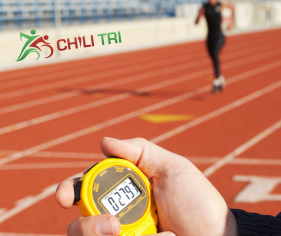
What is the Cooper Running Test and Why do it?
As a triathlete you probably test your training effectiveness regularly and complete the Critical Swim Speed (CSS) time trial test for swimming, Functional Threshold Power (FTP) testing for cycling and may a One-Repetition Maximum (1RM) test for strength and these will take at least an hour to complete fully. Many athletes get nervous before doing these tests and let’s be honest probably don’t look forward to them!
The good news is that there is a simple and relatively quick performance test for running and it’s called the Cooper 12-minute run test.
The Cooper 12-minute run is a popular maximal running test of aerobic fitness, in which you try and cover as much distance as they you in 12 minutes. You can also use it to work out your VO2 max.
Why do a Cooper Running Test?
To test your aerobic fitness (the ability of your body to use oxygen to power it while you are running). The test will give you a stake in the ground from which you can see how effective your training is. After four to six weeks you can re-test and hopefully you will see you have become fitter.
What Equipment do you need?
A flat oval or running track, marker cones, recording sheets, stopwatch. Or you can use a good GPS watch like a Garmin, Polar or Wahoo Element device.
How do I Complete the Cooper Test?
Place markers at set intervals around the track to aid in measuring the completed distance. Athletes run for 12 minutes, and the total distance covered is recorded. Walking is allowed, though the athletes are encouraged to push themselves as hard as they can to maximize the distance covered.
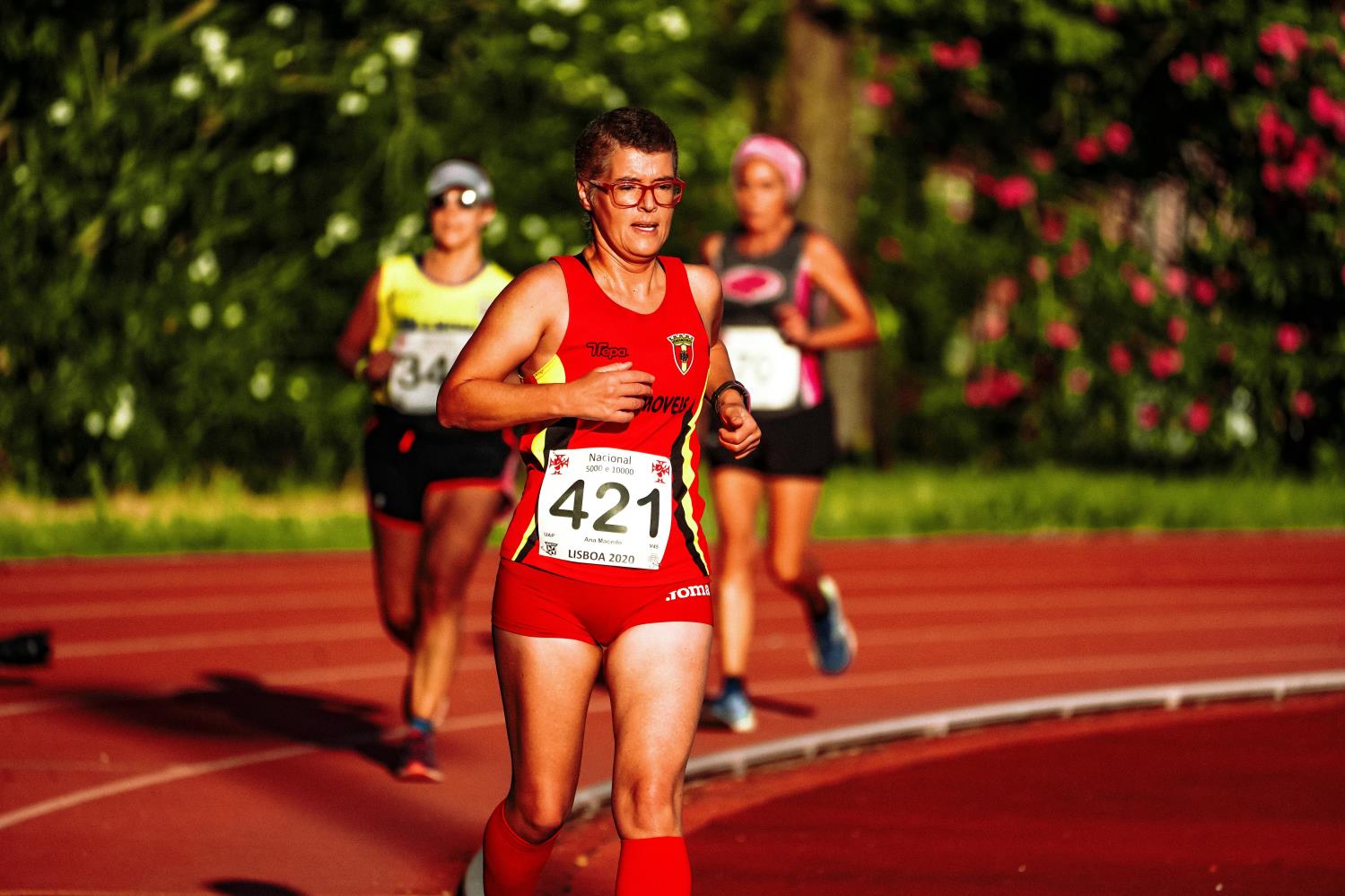
Get your FREE guide to Running Technique
Calculating you Score and VO2Max
There are Cooper test normalised tables for general guidelines for interpreting the results of this test for adults.
There are also several equations that can be used to estimate VO2max (in ml/kg/min) from the distance score (a formula for either kms or miles):
VO2max = (35.97 x miles) – 11.29
VO2max = (22.35 x kilometres) – 11.29
But it’s easier to use the ChiliTri Cooper Test Calculator. Click on the link then select the "Running" tab to see the Cooper Test Calculator. Enter your stats and find out your VO2max.
What is VO2max?
VO2 max, or your maximal oxygen consumption, is like your body's superhero mode during intense workouts. It tells you just how much oxygen your body can handle when you're pushing yourself to the limit. We measure it in millilitres of oxygen per kilogram of your body weight per minute (ml/kg/min).
Think of it as your body's ability to deliver and use oxygen during exercise—it's like your fitness superpower. So, when you're out there giving your all in a workout, your VO2 max is like the MVP, making sure your muscles get the oxygen they need for peak performance.
Athletes often get their VO2 max tested to see how efficiently their body uses oxygen. The higher your VO2 max, the better your endurance and overall fitness. It's like upgrading your body's engine for top-notch performance.
Remember, factors like genetics, age, and how much you've been training can influence your VO2 max. The good news? Regular cardio workouts can actually boost your VO2 max, so you can keep levelling up your fitness game. So, embrace your VO2 max—it's your fitness sidekick helping you go the extra mile!
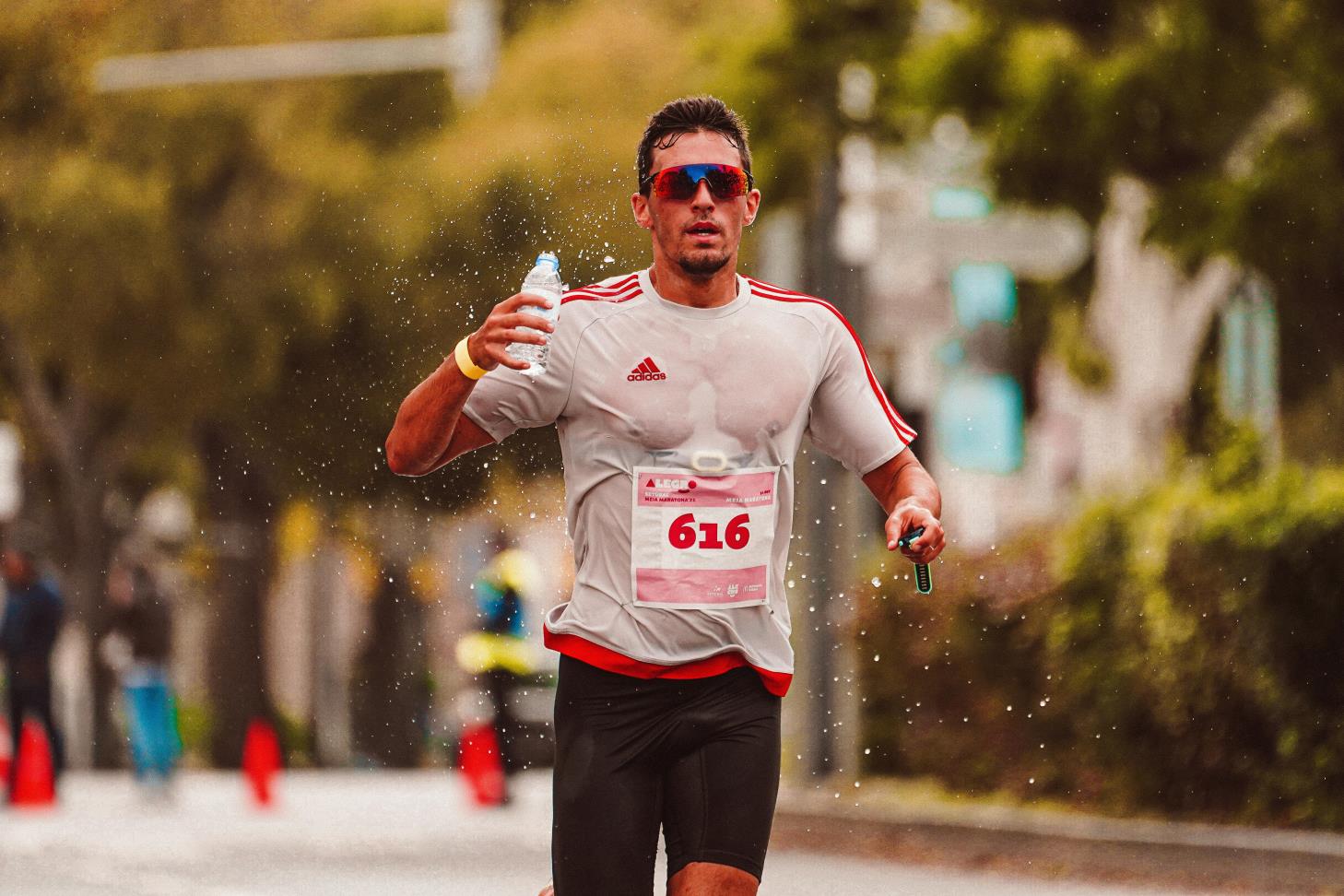
Get your FREE guide to Running Technique
Who can do the Cooper Test?
The good news is that this test is great for everyone!
This test can be modified to be suitable for most populations. For those who are unfit or unable to run, there are similar walking tests that can be performed.
If someone can't run due to physical limitations or other reasons, there are alternative exercises that can be used to estimate aerobic fitness. The key is to choose an activity that elevates the heart rate and engages the cardiovascular system. Here are some modifications for individuals who can't run:
1. Walking: If running is not an option, brisk walking can be a suitable alternative. Follow the same principles as the Cooper Test but replace running with fast-paced walking. Measure the distance covered in 12 minutes and use the same formula to estimate VO2 max.
2. Cycling: Stationary cycling or cycling on a measured path can be an excellent substitute. Keep a steady pace for 12 minutes, measure the distance covered, and use the formula to estimate VO2 max.
3. Swimming: Although it's challenging to measure distance in a pool accurately, swimming laps at a consistent intensity for 12 minutes can provide a good cardiovascular workout. While the Cooper formula may not be directly applicable to swimming, the exercise is still beneficial for overall fitness.
4. Elliptical Trainer or Rowing Machine: These machines offer low-impact alternatives. Use them for 12 minutes at a challenging yet sustainable pace and estimate VO2 max based on the distance covered.
5. Chair Aerobics or Seated Exercises: For individuals with limited mobility, chair exercises can still elevate the heart rate. Perform seated leg lifts, arm exercises, or use resistance bands to create a cardiovascular workout. While the Cooper formula may not be directly applicable in this case, the focus can be on maintaining a consistent effort for a set duration.
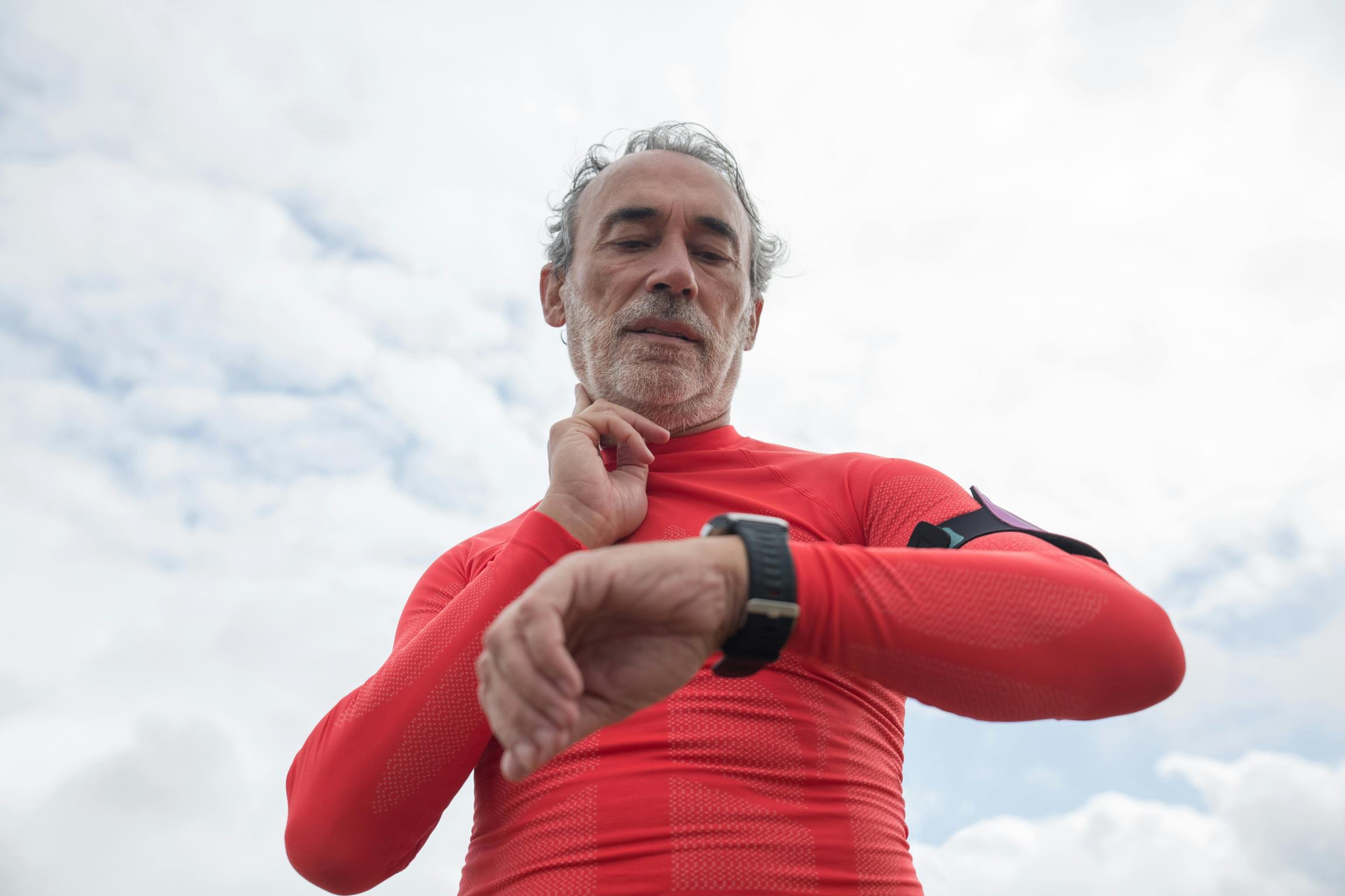
Get your FREE guide to Running Technique
Cooper Test Validity
The 12-minute run fitness test was developed by Kenneth Cooper, MD, in 1968 as an easy way to measure aerobic fitness and provide an estimate of VO2 max for military personnel. So, this simple test has stood the test of time.
Cooper (1968) reported a correlation of 0.90 between VO2max and the distance covered in a 12 min walk/run.
Reliability
The reliability of this test would depend on practice, pacing strategies and motivation level. There should be good reliability if these issues are addressed. After a few attempts you will get used to the test.
Advantages
Large groups can be tested at once, and it is a very cheap and simple test to perform. It’s also relatively quick and very easy to understand.
Disadvantages
Practice and pacing is required, and performance on this test can be affected greatly by motivation. For any performance test make sure you are well rested, hydrated and are not doing the test fasted (make sure your body has sufficient carbohydrate stores to call upon).
World Records
The current world record holder for 5000 meters in the men's category is Uganda's Joshua Cheptegei, with a time of 12:35.36. Based on that time he would complete 4765m or 11.91 laps in 12 minutes!
Cooper Test Variations and Modifications
The test can also be conducted by running on a treadmill for 12 minutes, set to level 1 (1 percent) incline to mimic outdoor running.
There are also many variations of the walk / run test.
A very similar test is the Balke 15 minute run.
Testing is generally easier to administer when the distance is fixed and the finishing time measured, so the alternative Cooper 1.5 mile (2.4km) run test was developed.
Conclusion: Cooper Test
Incorporating the Cooper 12-minute run test into your fitness routine is a fantastic way to gauge and enhance your aerobic capacity.
This straightforward yet effective assessment not only provides insights into your current fitness level but also offers a benchmark to track your progress over time.
Whether you're a seasoned athlete or just embarking on your fitness journey, the Cooper test is a valuable tool to help you understand and improve your cardiovascular health.
So, lace up your running shoes, hit the track, and see how far you can go in 12 minutes—your fitness journey awaits!
Karen Parnell is a Level 3 British Triathlon and IRONMAN Certified Coach, 8020 Endurance Certified Coach, WOWSA Level 3 open water swimming coach and NASM Personal Trainer and Sports Technology Writer.
Karen is currently studying for an MSc in Sports Performance Coaching at the University of Stirling.
Need a training plan? I have plans on TrainingPeaks and FinalSurge:
I also coach a very small number of athletes one to one for all triathlon and multi-sport distances, open water swimming events and running races, email me for details and availability. Karen.parnell@chilitri.com
Get your FREE Guide to Running Speed and Technique
Get your FREE Swim Workouts for Triathletes E-book
Get your FREE Open Water Swimming Sessions E-Book
Get a free training plan or recipe book here.
Download your FREE 8-Week Trail Running Training Plan.
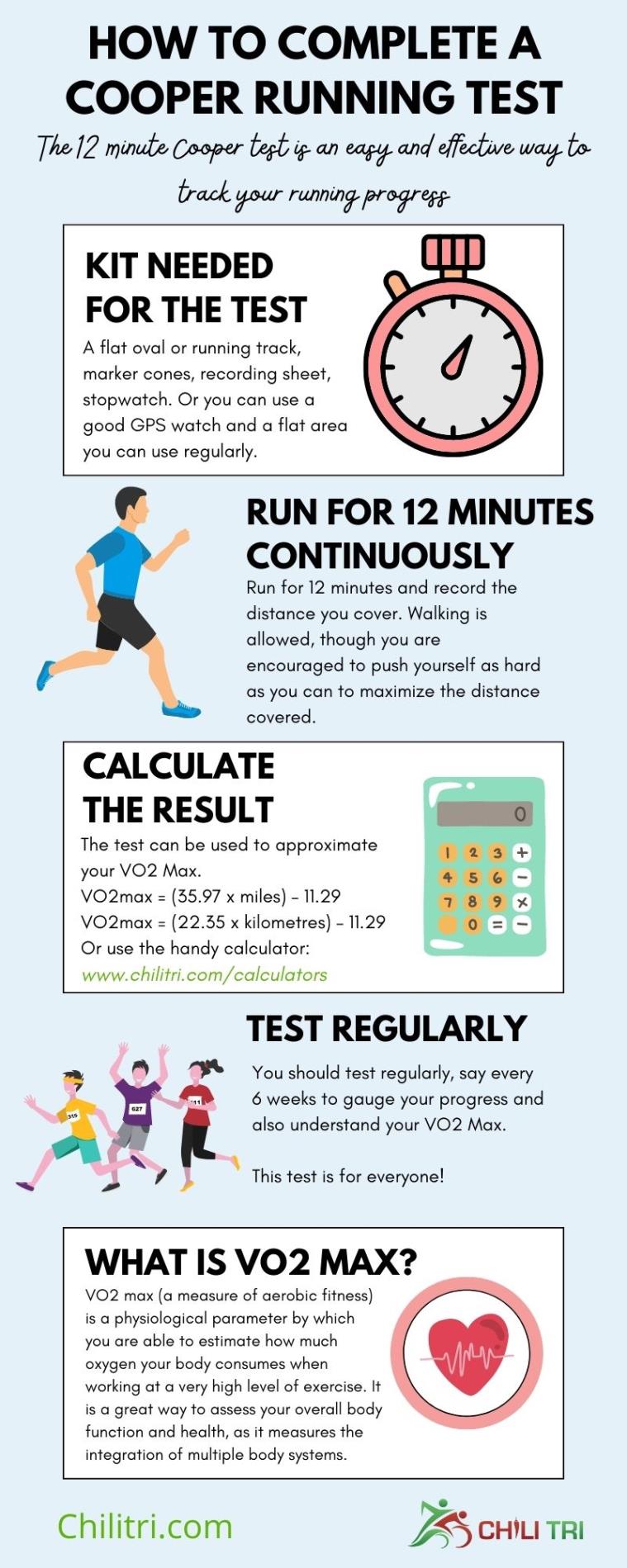
Cooper Test Infographic from ChiliTri - contact me for a PDF copy karen.parnell@chilitri.com
FAQ : The Cooper Test and why it is used to track running performance improvements
What is the Cooper Test?
The Cooper Test is a running test designed to measure an individual's aerobic fitness and estimate their VO2 max (maximum oxygen consumption). It involves running as far as possible within a set time of 12 minutes.
How does the Cooper Test work?
To perform the Cooper Test, you simply run for 12 minutes and cover as much distance as you can. The total distance covered is then used to assess your aerobic fitness level.
Why is the Cooper Test used to track running performance?
The Cooper Test is commonly used for the following reasons:
- Simplicity: The test is straightforward and can be conducted on a track, road, or any measured course. Minimal equipment is needed, making it accessible and easy to administer.
- Measurement of aerobic fitness: The test provides an estimate of an individual's aerobic capacity or VO2 max, which is a key indicator of cardiovascular fitness and endurance.
- Progress monitoring: By performing the Cooper Test periodically, you can track your running performance over time. Comparing your results from different tests can help evaluate improvements or identify areas for further training.
- Goal setting: The Cooper Test can assist in setting realistic goals for running performance. By establishing a baseline and tracking progress, you can set specific targets and work towards achieving them.
- Training intensity guidance: The results of the Cooper Test can help determine appropriate training intensities for different workouts. It provides insights into your current fitness level and assists in designing training plans tailored to your abilities.
How accurate is the Cooper Test in estimating VO2 max?
While the Cooper Test provides a useful estimation of VO2 max, it is not as precise as laboratory-based tests. The test relies on assumptions about the relationship between running performance and aerobic fitness. Factors like running economy and individual differences can affect the accuracy of the estimation.
Are there any limitations or considerations with the Cooper Test?
Yes, it's important to keep the following points in mind:
- Individual variations: Fitness levels, running experience, and training background can influence the results. The test may be more suitable for individuals with a moderate to high fitness level.
- Running technique: The test does not assess running form or technique. While it measures aerobic fitness, it doesn't provide insights into other aspects of running performance, such as speed, power, or agility.
- External factors: Environmental conditions, such as temperature, humidity, and terrain, can impact performance during the test. It's important to consider these factors and aim for consistent testing conditions.
- Injury risk: Pushing yourself to your maximum effort during the test may increase the risk of injury, particularly if you are not adequately warmed up or if you have any underlying health concerns. Ensure proper warm-up and cool-down and listen to your body.
Can the Cooper Test be used for other sports or activities?
While the Cooper Test is primarily used for running, it can provide some insight into overall cardiovascular fitness. However, it may not be as applicable or relevant for sports that involve different movement patterns or energy systems.
Remember, the Cooper Test is just one tool among many to track running performance. It should be used in conjunction with other assessments and measures to gain a comprehensive understanding of your progress and fitness level.
What is VO2 max?
VO2 max, or maximal oxygen consumption, is a measure of the maximum amount of oxygen your body can use during intense exercise. It reflects your cardiovascular fitness and aerobic endurance.
Why is VO2 max important?
VO2 max is a key indicator of your aerobic capacity. Higher VO2 max values are generally associated with better endurance and cardiovascular health. It's commonly used by athletes and fitness enthusiasts to assess and track their fitness levels.
How is VO2 max measured?
VO2 max is often measured through specialized exercise testing in a laboratory setting. However, field tests like the Cooper Test can provide a practical estimate. The formula involves measuring the distance covered in a set time during activities like running, walking, cycling, or swimming.
Can I improve my VO2 max?
Yes, regular aerobic exercise can improve your VO2 max over time. Engage in activities like running, cycling, swimming, or high-intensity interval training to enhance cardiovascular fitness.
What factors influence VO2 max?
Genetics, age, sex, and training status all play a role in determining VO2 max. Regular exercise, especially aerobic training, can positively impact this measure.
Is a higher VO2 max always better?
While a higher VO2 max is generally associated with better aerobic fitness, it's not the sole determinant of athletic performance. Other factors like technique, muscular strength, and endurance also contribute to overall athletic ability.
Can I estimate VO2 max without specialized testing?
Yes, the Cooper Test is a simple field test that provides an estimate of VO2 max. Measure the distance covered in 12 minutes during activities like running or brisk walking, and use a formula to calculate an approximation of VO2 max.
Are there any health risks associated with testing VO2 max?
VO2 max testing is generally safe for healthy individuals. However, it involves intense exercise, so it's advisable to consult with a healthcare professional, especially if you have pre-existing health conditions.
How often should I assess my VO2 max?
The frequency of testing depends on individual goals and training intensity. Athletes may assess it regularly to track progress, while others may choose less frequent evaluations.
Can VO2 max decline with age?
Yes, VO2 max tends to decline with age. However, regular exercise, particularly aerobic activities, can help mitigate this decline and maintain cardiovascular health.
Remember, individual circumstances vary, and it's always wise to consult with healthcare or fitness professionals for personalized advice.
References
The original article that describes this test: Cooper, K. H. (1968) A means of assessing maximal oxygen uptake. Journal of the American Medical Association 203:201-204.
#traithlontrainingplans #runningtrainingplans #swimmingtrainingplans #running #coopertest #triathlon
